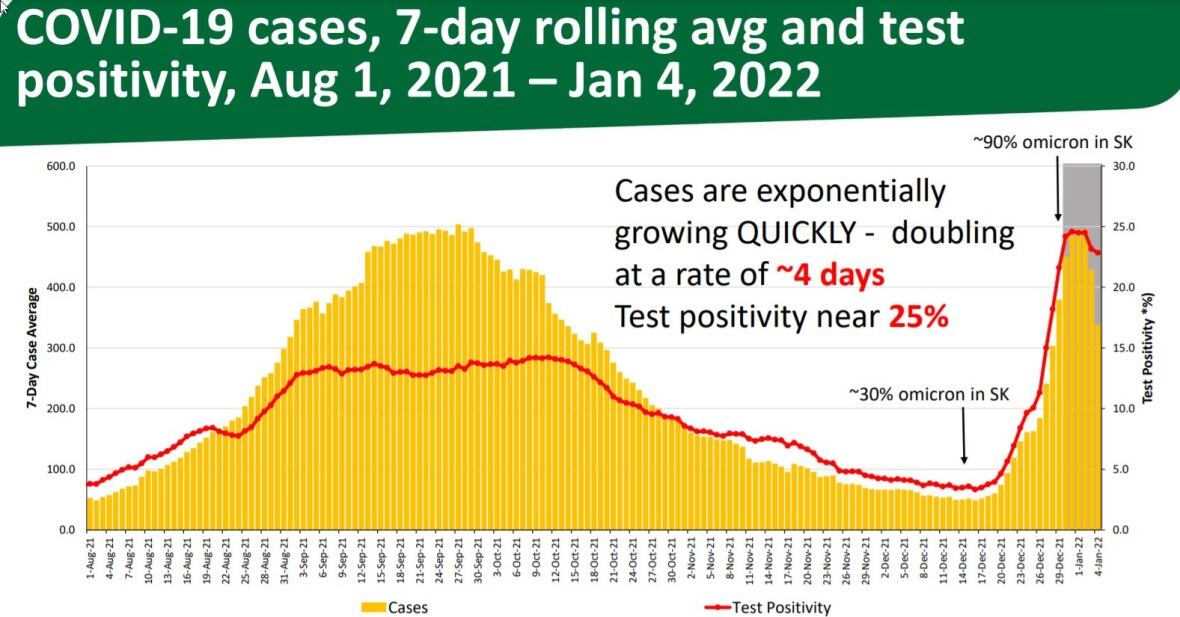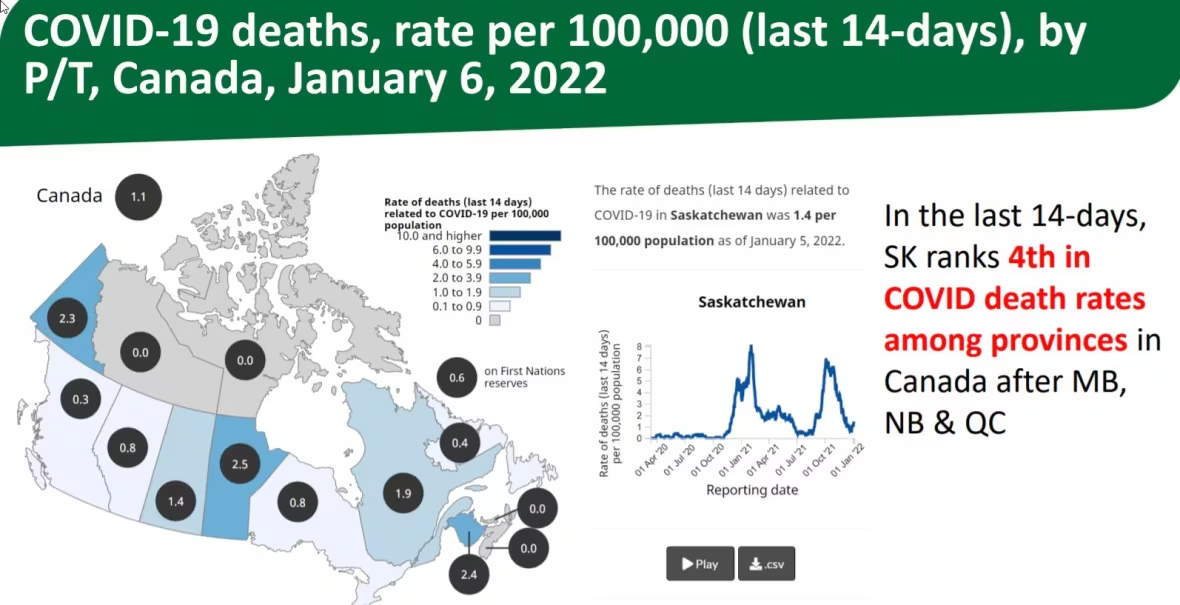COVID-19 in Sask.: No deaths reported, lowest number of ICU patients since July
8 people now in ICU with COVID-19, down from 11 on Thursday

For the eighth day in a row, Saskatchewan is reporting no new deaths due to COVID-19.
Hospitalizations rose by eight, to 131 patients with COVID-19 as of Friday, according to the province's latest update. But the number of people in intensive care with the illness dropped by three, to eight.
That's the lowest number of people in ICU with COVID-19 since July 11, when that number stood at six.
The province also reported a record 1,412 new cases of COVID-19 Friday, and 10,325 known active cases.
However, those numbers only include those who have been able to get a PCR test. The case numbers do not include people who got a positive result from a rapid test, or those who may be carrying the virus that causes COVID-19 but aren't showing any symptoms.
The province's current test positivity rate, based on those who were able to get a PCR test, is 32 per cent.
About 43 per cent of the new cases reported are in the 20-39 age category.
The province has also administered 2,676 more COVID-19 vaccine doses, of which 1,080 were first doses.
There are now 874,329 people in the province who are considered fully vaccinated.
Prepare for major disruptions
At Thursday evening's Physician's Town Hall, Medical Health Officer Dr. Johnmark Opondo said the Omicron wave is moving very fast, with cases doubling every four days and major disruptions are likely.
"This is not only going to be a surge in cases, but this is also going to come with the attendant human resource constraints because of staff illness and staff absenteeism — because of taking care of a loved one who might have Omicron at home," Opondo said.

He said most cases will be undiagnosed and everyone is at risk for infection
Opondo said if you have COVID symptoms, no matter how mild or cold-like, assume it is COVID and self-isolate.
Saskatchewan has one of the lowest case rates in the country, but it also has among the lowest testing rates.
Opondo said the province is still in the early days of the surge, being three weeks behind Quebec and 10 days behind Ontario.

And he said we have to keep in mind hospitalizations are two weeks behind viral activity in the community.
"We may be at the start of an acceleration of our hospitalization, but ICU still seems to be kind of stable. But this is something that we can expect to be challenged like we've seen in other neighbouring provinces in Canada," he said.
Opondo said even if a small proportion of people are hospitalized the huge number of infections will mean many people being admitted to hospital in a short period of time and will likely create capacity issues.